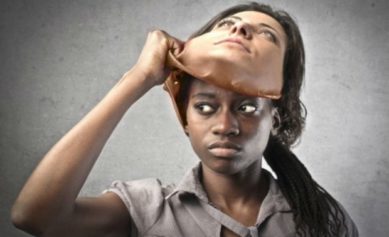
The same week Tatum’s death was announced, the body of 30-year-old, first-year medical resident Teleka Patrick was pulled from a lake in Indiana. In the days leading up to her December disappearance, she and others expressed concern over her mental health. The circumstances of her death remain unclear.
One week after Patrick’s body was found, 22-year-old Karyn Washington, founder of For Brown Girls, a well-known blog dedicated to combating colorism and promoting self-love for Black women, was found dead in an apparent suicide.
The plight of Black boys garners well-deserved attention, even from the White House—but Black girls are fighting epic wars of their own, too.
“Black girls are under the radar,” says Monique Morris, author and president of the National Black Women’s Justice Institute. “At this point, all of the conversations are geared toward men and boys, and now at least a billion dollars annually will be invested in ensuring that men and boys of color have services that are uniquely responsive to their condition. And we don’t see that similar investment in girls.”
This lack of investment may be because Black girls seem to be winning their wars, especially when compared to their male counterparts. On standardized math and reading tests, they outscore their male counterparts. They report lower levels of tobacco and alcohol use than their white counterparts, according to the Centers for Disease Control and Prevention’s youth surveillance survey. And in 2012, the National Center For Education Statistics reported gains in higher education, with African-American women and girls coming from behind to outpace everyone in the rate of college enrollment.
At the same time, 4 in 10 Black girls don’t graduate from high school. Starting as early as preschool, they are more likely to be suspended than all other girls, and most other boys. In some states, such as Wisconsin, they are the group most likely to be disciplined in this manner.
The social justice organization, Black Women’s Blueprint, finds that nearly 60 percent of black women have been sexually assaulted by age 18. And in 2009, University of Southern California researchers found that Black girls are actually 50 percent more likely than white girls to be bulimic.
“It’s important to have conversations with girls about patriarchy and about racism, so they understand the structures they’re living in and can develop the language and analysis on how to navigate these systems,” Morris explains “They get it. They know when they’re being victimized, and they understand that there are constructs of oppression. What they might not understand is the ways they’re internalizing it, and believing it, and reenacting it in ways that are destructive to their own wellbeing.”
Saving Our Lives, Hearing Our Truths is one program that’s trying to help foster that understanding and sense of self-examination. Based in Illinois’ Champaign-Urbana metro area, SOLHOT creates safe spaces for Black girls through art, storytelling, camaraderie, and the support of the eight Black women (called “Homegirls”) who shepherd them.
“Black girlhood is rather complex,” says Claudine “Candy” Taaffe, a SOLHOT Homegirl and doctoral student in the University of Illinois Urbana-Champaign Department of Education. “Because it doesn’t exist in a vacuum. Black girls are not asking to be saved, and I’d argue that Black boys are saying the exact same thing.”
So what are Black girls asking?
“A lot of it is just not being understood, not being listened to, not being expected to be as smart as other people,” Taaffe says of the middle- and high-school girls she works with.
Black girls may not be asking to be saved, but as SOLHOT’s success suggests, the positive, judgment-free support of adults is helpful.
Read the full story at newpittsburghcourieronline.com


